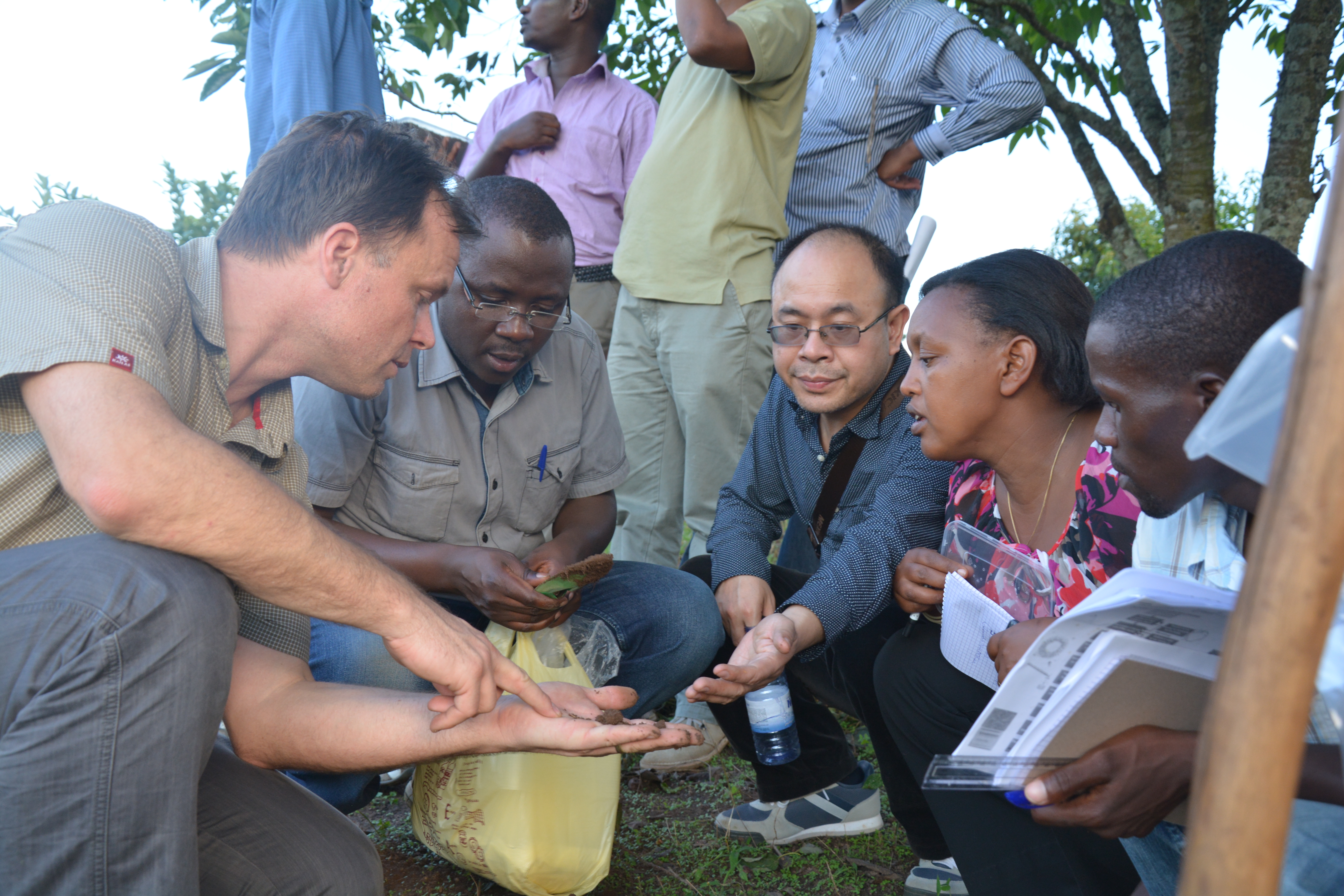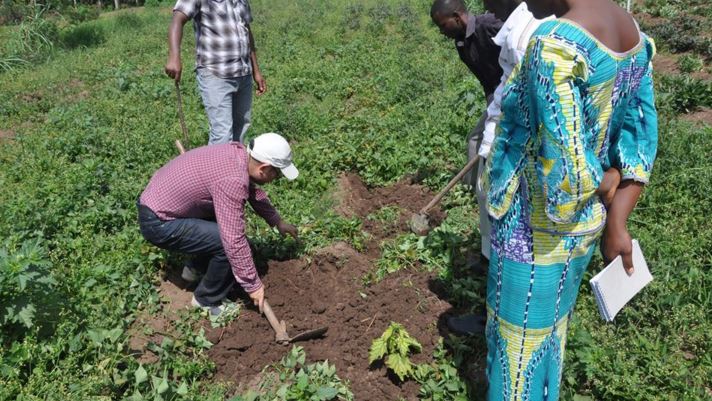
"As we embark on efforts to achieve the Sustainable Development Goals, we need to accelerate development momentum across the South, including by building resilience and mitigating risk." – Secretary-General Ban Ki-moon Message for the UN Day of South-South Cooperation
12 September is the United Nations Day for South-South Cooperation. South-south cooperation (the exchange of resources, technology and knowledge between developing countries) and triangular cooperation (southern-driven partnerships supported by a developed country) are important for achieving the Sustainable Development Goals (SDGs). We take a look at how a CABI collaboration brought expertise from Africa, China and Europe to help a soil health breakthrough.
In 2011, an outbreak of soil insect pests devastated crops across Rwanda. This badly affected smallholders’ livelihoods, impacting families’ food security and reducing incomes. Something needed to be done.
The answer lay in CABI building a ‘triangular’ cooperation team from Africa, China and Europe (Switzerland and the UK) that worked with the Guangdong Entomological Institute in China (GEI), the Institute of Plant Protection of the Chinese Academy of Agricultural Science (IPP-CAAS) and the Rwandan Agricultural Board (RAB). It provided smallholders in Rwanda with access to an environmentally friendly, biologically based way to control soil pests in vegetable crops.
The solution came in the form of naturally occurring parasitic worms or beneficial nematodes. These tiny worms selectively kill soil-dwelling insects like bean fly, cut worm and white grubs, leaving the vegetables unharmed. This CABI-led project built on Chinese and European technology to mass produce beneficial nematodes at a newly established factory in Rwanda – a first for the country and East Africa. Nematodes native to Rwanda’s soil were successfully selected for their ability to target soil pests.
The nematode factory has not only brought an important boost to Rwanda’s growing expertise in controlling crop pests, but also became a regional platform for research between Rwanda and neighbouring countries, and a model for future cooperation and scale-out. A large number of activities were put in place to help share skills among people responsible for crop health in Rwanda. This has successfully enabled Rwanda to conduct its own research on soil insect pests and beneficial nematodes, as well as to produce the nematodes and train farmers on how to use them. The project has started the development of legislation for biological control products. None of these achievements existed in Rwanda before the project.
“Through the trilateral cooperation, RAB scientists have profited from the research and technological expertise of the international project partners. A well-functioning collaboration has been established, which lay a foundation for future partnerships.” – Joelle Kajuga, Head of Research, Rwanda Agriculture Board (RAB) Southern Zone, Rwanda

